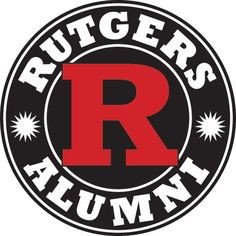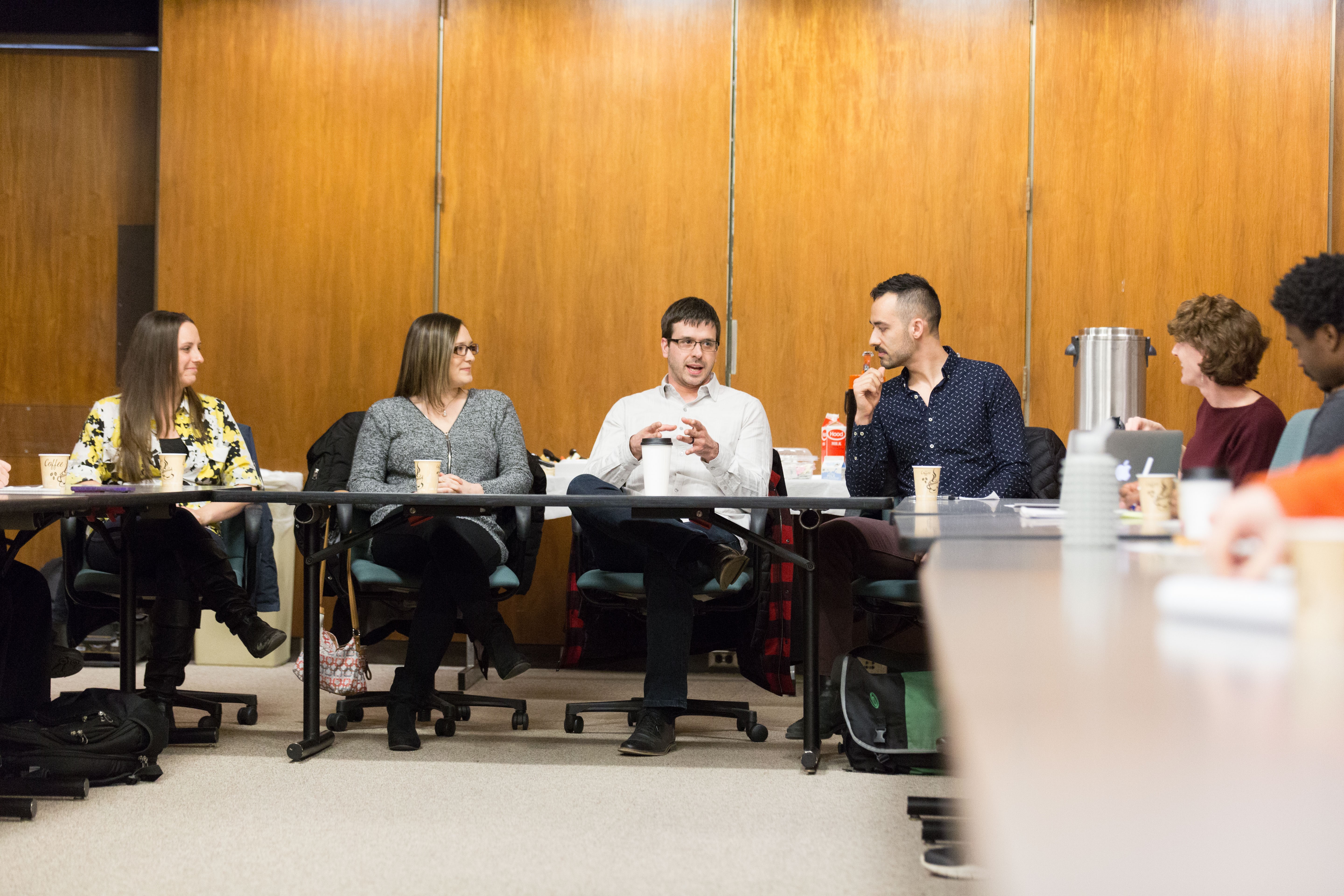By: Tomas Kasza On March 16th iJOBS hosted a career panel of four Rutgers PhD alumni, all of whom have secured impressive positions following completion of their graduate school education. If you have not had a chance to attend one of these Alumni career panels I would highly recommend it because these alumni may be able to direct you toward opportunities available at Rutgers for your desired post-graduate career. One of the panel members was Dr. Abigail Harris, an Assistant Professor at Bloomsburg University located in Bloomsburg, Pennsylvania, and graduated in 2013. She was a bench scientist during her thesis work, and then went on to work at a research hospital to complete a bioinformatics Post-doctorate. During her Post-doctorate training she realized she wanted a position that involved mentoring students and included more social engagement. This led her to her current position as an Assistant Professor, where she directly mentors undergraduate and master’s level students in her bioinformatics research laboratory. Her Professorship allows her to teach distinct disciplines to Bloomberg’s undergraduates. which she is excited about and enjoys doing. When asked for advice, Dr. Harris stressed the importance of networking in her career progression and the opportunities it provides. She also said her previous experiences like creating a teaching program for undergraduates during her Post-doctorate, when there previously was none, displayed her commitment to teaching and allowed her to secure her position. Next up was Dr. Leah Novak, a scientific program officer at National Heart Lung and Blood Institute. Dr. Novak completed a five-year long Post-doctorate at the National Cancer Institute. She then decided to do briefly switch gears and went to work on Zika virus for six months before accepting her current position. One thing Dr. Novak stressed was the lack of career options or career paths for many of the Post-doctorates at the NIH. Research scientist positions are rare, and most Post-doctorates are forced to move on after five years. In her current position, as a program manager at the National Heart Lung and Blood Institute, she observes grants in progress, making sure the project goals are being met, and decides which grants should be sent to the funding committees. Additionally, scientific program officers along with program managers have to decide where the knowledge gaps in their field are and then communicate with Principal Investigators about addressing that knowledge gap.  The third panel member was Dr. James Novak is an Assistant Professor at the Children’s Research Institute in Washington DC. After completing his PhD, he switched fields during his Post-doctoral training to study Duchene’s Muscular Dystrophy and continues to study the disease as an Assistant Professor. Dr. Novak described his switch to a new field of study during his Post-doctorate as a great opportunity; during this time, he received fantastic training, which encouraged him to apply for external funding early, and often. He also talked about how important it is to identify a good Post-doctoral advisor, and finding a good environmental fit for yourself, whether that is a small, medium, or large research laboratory. Finally, he suggested asking tough and direct questions when interviewing, it’s important to try and determine if the environment of a lab is the best fit for you! The most recent panel member to have graduated was Dr. John Brezinski. Dr. Brezinski graduated from Rutgers in 2016. Knowing that he did not want to go on to do a Post-doctorate or continue bench research, he pursued a career with a more direct one-on-one relationship with other people. He happened to get an informational interview- a type of interview where there is no open position but if one opens up they may contact you- at Tiberend Strategic Advisors. He was able to get a position entitled Investor relations account supervisor and has been working at Tiberend ever since. He describes his role as a type of liaison for the investors to understand what’s going on with the companies they have invested in. So far, he likes how much client interaction he is involved in and manages the investment firm’s portfolio of ten different biotech companies. Part of his job also involves writing the press releases that company’s put out along with their earnings. He recruits investors to invest their money in the companies which his firm represents. In case you were wondering how Dr. John received the experience needed to complete the job, he stated that the company trained him after he was hired. During the question and answer portion of the panel I asked, “If you could have prepared yourself for your position, would you have? How would you have done it?”
The third panel member was Dr. James Novak is an Assistant Professor at the Children’s Research Institute in Washington DC. After completing his PhD, he switched fields during his Post-doctoral training to study Duchene’s Muscular Dystrophy and continues to study the disease as an Assistant Professor. Dr. Novak described his switch to a new field of study during his Post-doctorate as a great opportunity; during this time, he received fantastic training, which encouraged him to apply for external funding early, and often. He also talked about how important it is to identify a good Post-doctoral advisor, and finding a good environmental fit for yourself, whether that is a small, medium, or large research laboratory. Finally, he suggested asking tough and direct questions when interviewing, it’s important to try and determine if the environment of a lab is the best fit for you! The most recent panel member to have graduated was Dr. John Brezinski. Dr. Brezinski graduated from Rutgers in 2016. Knowing that he did not want to go on to do a Post-doctorate or continue bench research, he pursued a career with a more direct one-on-one relationship with other people. He happened to get an informational interview- a type of interview where there is no open position but if one opens up they may contact you- at Tiberend Strategic Advisors. He was able to get a position entitled Investor relations account supervisor and has been working at Tiberend ever since. He describes his role as a type of liaison for the investors to understand what’s going on with the companies they have invested in. So far, he likes how much client interaction he is involved in and manages the investment firm’s portfolio of ten different biotech companies. Part of his job also involves writing the press releases that company’s put out along with their earnings. He recruits investors to invest their money in the companies which his firm represents. In case you were wondering how Dr. John received the experience needed to complete the job, he stated that the company trained him after he was hired. During the question and answer portion of the panel I asked, “If you could have prepared yourself for your position, would you have? How would you have done it?”
The panel members agreed that it was important to take opportunities as they come in order to be prepared for your eventual career. Start now in taking advantage of the opportunities available at Rutgers. Networking and taking advantage of your boss’s network will help create different types of opportunities, which can help you toward any career path that you may choose. I think the most valuable piece of information I obtained from this seminar came from the alumni in academia. They discussed how it is quintessential to take advantage of the opportunities that interest you in order to set yourself up for the next step. I thought the path toward academia was linear, in that you need to secure a Post-doctorate and do great science, but I found that there are additional opportunities that need to be taken for one to become a more competitive faculty candidate. Taking advantage of the opportunities available to you as a Rutgers graduate student is essential no matter what career you pursue after your graduate education, so get started! Junior editor: Monal Mehta Senior editor: Aminat Saliu Musah
